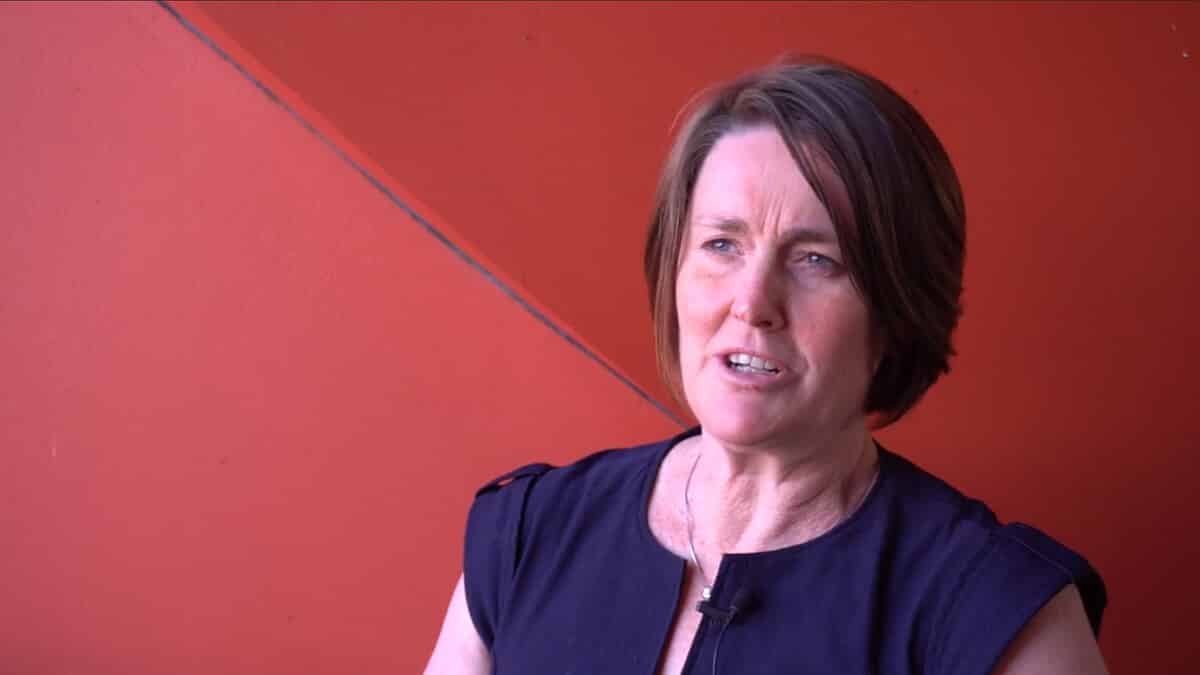How to plan your income in retirement can be one of the most confusing aspects of retirement planning.
In this video members of the Profession of Independent Financial Advisers provide some insights into how they approach it.
Transcript
Keith Henderson, Malibu Wealth Advisory
It’s a difficult question, because fundamentally, people start out… most people, not really understanding what an asset is and what a structure is and what super is. So, it’s amazing, very educated people don’t really understand what their money is doing, where it is, and it is important to start that educational voyage.
It’s not rocket science. None of this is rocket science, but you need to understand what super is. You need to understand how the Age Pension works. You need to understand what a growth asset is and what… or go to a good adviser and they can do that for you, but either way, you got two choices.
You educate yourself or you seek good advice or you get a combination of the two. But without someone knowing what’s involved, something’s going to be missed.

Free eBook
Retirement planning for beginners
Our easy-to-follow guide walks you through the fundamentals, giving you the confidence to start your own retirement plans.
"*" indicates required fields
Phil Thompson, Rise Financial
I think for many people their financial strategy is just to hope it’s going to work out and work day to day. Earn your income, pay your bills, pay the mortgage.
Financial planning, in my opinion, the future of planning, it’s more about being deliberate in your future choices. So, one of the best things I think we do as planners is to make a nice picture out of what do all the moving pieces mean. Let’s build a picture for the future and say, “If we do X, Y, and Z, then we’re on track for this kind of retirement or achieving these objectives.”
Because there are so many moving pieces, we want to make sure they move well together and part of that’s understanding, “Well, how do we fund retirement?” And that may be part of an Age Pension, may be drawing down on some superannuation. It may be living on some savings, as well, a combination of all these components. I think that’s our skills in bringing that together to make sure it all works well.
Naomi Horobin, Clover Financial Group
It is definitely, for wage earners, it is one of the most stressful things is the idea that next fortnight, that wage is not going to come into their bank account.
So, being able to show them that their wage is going to come in next fortnight or next month and that the probability of that continuing not to their life expectancy, but is going to continue through until they’re 100, that takes all of that stress away about stepping across the line and making the decision to give up that security of having that regular salary, because they know where else it’s going to come from.
And there’s lots of different versions of how to make that happen. It’s just picking the right one.
Start planning your retirement – for free

Access clear, independent guidance and tools that make it easier to plan with confidence and take control of your future with a free SuperGuide account.
Find out moreDaniel McGregor, Wealth Train
For me, I find what resonates really well with my clients is the idea of the right investments, the right money in the right investments for the right timeframes, because a lot of people just don’t have a high degree of financial literacy and I can often find themselves either investing too cautiously or too aggressively without understanding the consequences.
So, once we go through the sequence of the timeframes that they need to be planning for in retirement, the short-term, medium-term, and long-term, that then drives the decisions around where I put the money for those particular timeframes.
Joe Stephan, Stephan Independent Advisory
In terms of determining a level of retirement income that’s satisfactory and that is going to achieve the critical objectives of a family, you really need to have a transparency and ability to audit what’s been going on historically. And so, there are plenty of programs and technologies out there that allow us to determine what the patterns of spending are as an example with a family. From there, you have a pretty good idea and often, families are kind of shocked by the level of spending that might be happening.
So, it’s often good to project conservatively and say, “Well, OK, if you’ve been spending like this previously, I think it’s a reasonable assumption to say that you might be spending like that going forward, and therefore, based upon your capital, what sort of investment approach do we need to be able to achieve that objective of income?”
And if there are compromises to be made in that, “We don’t want to take on too much investment risk,” then we need to compromise on the level of income that’s going to be generated. So, it’s really a function of auditing exactly what is going on right now.
Rick Horvat, Horvat Financial Advisers

Free eBook
Beginners guide to the Age Pension
Learn how the Age Pension is assessed, and how to apply.
"*" indicates required fields
I think when we work with our clients, it’s trying to get them to convey to us what they know, what they believe, what they’re trying to achieve, and it’s our job to figure out a way in which they can achieve those outcomes.
So, they’re engaging us to say that, “I need 80, 90, 100,000, 200,000 dollars a year to live off. Here’s my capital base. I have the propensity to maybe work a couple days a week. How do I best do this?” And then, it’s our job to sort of figure that bit out.
Now, whether or not it be through superannuation, whether or not it be through trusts, whether or not it be through interlinking company structure, whatever it might be, and then the underlying investments, that’s my job and that’s our job at the end of the day, but we really try to get the client to focus in on what they know.
Michael Radalj, Your Private Advisers
So, one of the things, at least, with the way that we invest is that the income is all clear. It’s measurable, and so, we’re giving confidence to people, saying, “There’s a portfolio. There’s income that’s measured,” and we can give them confidence to say that, “There’s a certain amount of cash coming in, plus, I’ve got the pluses and minuses that over time, will come your way, with volatility of various investment markets, et cetera,”.
But I believe the income side of it provides them with confidence to say, “That’s something that I can rely upon, and therefore, I can have confidence to walk away from the reliability of their income stream from work, et cetera”.
Dennis Maddern, Maddern Financial Advisers
I think modelling is the best way. I think there are two key questions to ask indicatively, “When would you like to retire?” And roughly, in today’s money, leaving inflation out, “How much would you like to have?”
Start planning your retirement – for free

Access clear, independent guidance and tools that make it easier to plan with confidence and take control of your future with a free SuperGuide account.
Find out moreAnd then, we talk about the Australian Bureau of Statistics mortality tables. So, if a guy’s going to retire at 60 and the ABS mortality tables say, “You’ve got 85,” well, leaving out the fact you may have good genes and go on longer, that’s 25 years. How are we going to fund you for 25 years?
Now, are you going to be a self-funded retiree and not jump through government hoops of income tests and assets tests? Do you need one dollar of the mature Age Pension to get the healthcare card, because you’ve had leukaemia and various other high-price drugs that you need on a regular basis, which means you’ll be a partially funded retiree or are you going to say, “No. I’ve paid taxes all my life. Are you from the government? Give me money. I deserve that.” So, again, I think it’s important to clarify all of these points on behalf of your client.
Amir Salehi, Planning Wealth Independent Advisory
We ask them some very simple questions. First of all, a very important starting point is those who are involved in that client and in that life together, they have to do it together. Sometimes, wife and husband, they think they are thinking the same way or for the same goals, but they are not on the same page.
So, getting on the same page is very important. So, together or with the help of someone, just get together and put their goals in a very clear way on a paper. Bring it to paper. Just don’t leave it to be in their minds. So, and what we do is exactly the same thing. We start with a very simple question. What’s really important to them? And the second question is what are those goals that they would like to achieve, that they need money and planning for it, and we get really, really clear on that.
Neil Salkow, Roskow Independent Advisory
Mostly in the planning and leading up to retirement, we’ve encouraged clients to rather transition into retirement by going part-time if they can, rather than necessarily stepping away entirely. And a lot of our clients, and even that word retirement, I don’t like it, they get to a position where work’s optional. Whether they choose to exercise that or not is a different story.
So, we try to get them into the mindset of, “You don’t need to be working for money,” and a lot of our retiree clients end up going back to work after six months, not because they need to, but because they’ve got a renewed sense of purpose or energy about them. They don’t need to be there so they want to be there all of a sudden, but for those that have just retired and there’s no other income coming, it can be a bit of a shift in mindset and mostly what we do is good old whiteboards.
Get the whiteboard out and just start showing how the flow of money’s going to work, making sure that they’re very aware of what they’re spending and how they’re spending. So, pulling out the boring old spending plan, rather than a budget, and working out what that’s going to look like and then, coming up with some sort of withdrawal strategy that makes most sense for them.
Beyond that, some of the mistakes I think people make is in, maybe, the investment options that they choose in retirement. If they focus too much on income, which a lot of people think they need, then they might actually step into a space where they’re taking more risk than they should be taking, because of that focus on income.
Rather, we focus on cashflow and managing cashflow, and that’s a very different conversation, a very different lens to be looking at your investments than comparing just the income.
Matthew Ross, Roskow Independent Advisory
Often, retirees won’t give themselves permission to touch the capital. Their plan is usually, “I’m going to live off the income. I can’t erode the capital,” and there’s a good reason for that and that is because as one of my clients said it, “Matt, you don’t get it. When you stop working, the money stops coming in. It’s very threatening. That’s all you’ve got. You’ve got to make that last your lifetime.”
So, there is this feeling of apprehension of digging into the capital, and I’ll give you an example where some clients weren’t spending what was in the plan, they were spending less, and I said, “Guys, what is it? What’s going wrong here?” And they said, “Matt, it’s not that we don’t trust you. We just don’t trust the system yet, because of how threatening it is. We have to make this money last a lifetime.”
Supercharge your retirement

Get super and retirement planning tips and strategies with our free monthly newsletter.
"*" indicates required fields
So, having a plan and having faith in that plan and knowing that if the markets go backwards by 5, 10%, and that every pension payment digs into your capital is a very threatening way to start retirement. That’s the hardest thing. The very first year of retirement, if you get a bad return, being a zero or under, a negative return, straight away, you’ll be questioning and thinking, “Should I have retired? I should have kept going for another year or two,” and trying to return to work after you’ve started is not an option for many people.
Give yourself permission to dig into their capital. So many of our clients’ kids are saying, “Mum and Dad spend the money.” So, you might have a few different types. Some are saying, “I’m not going to leave my thing,” and they’re spending it like crazy and the kids are concerned. Then, you’ve got others that are saying, “Mum and Dad, you’ve worked so hard for this. It’s your time to enjoy life.”
So, perhaps with the help of an adviser, you can get the balance right, that you’re not taking too much risk with your investments and you’re not spending too much, but you’re not depriving yourself too much, and that’s, I think, a key thing of what we do with our clients is to have the conversation and talk about all the options and come to a strategy that makes sense.
Keith Henderson, Malibu Wealth Advisory
Some people are way more comfortable than they realise, and they don’t need to stress at all. They just need to not do anything stupid. It’s all going to be fine. Other people think they’re right and they really are spending way more than they can and they don’t realise it.
So, the mismatch between people’s perception of themselves and the reality they’re in is pretty significant, and it’s not related to intelligence, it’s not related to career success, it’s just financial literacy.

Leave a Reply
You must be logged in to post a comment.